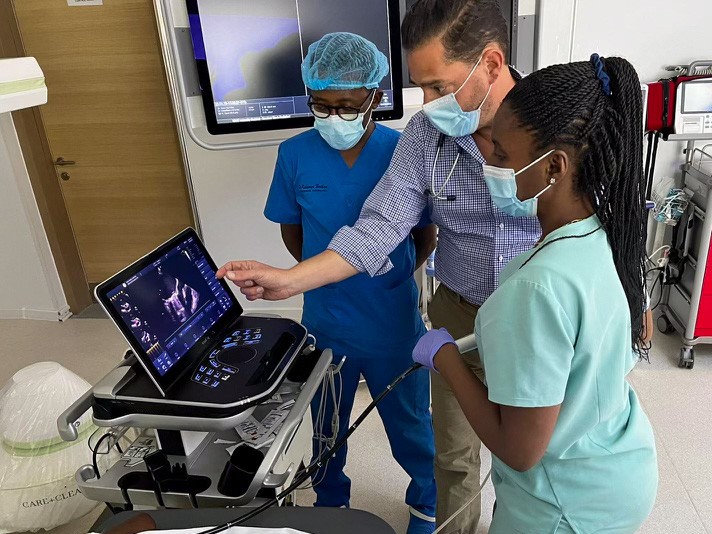A University of Cincinnati researcher made a groundbreaking discovery that has the potential to revolutionize the treatment of heart failure, as reported by the Cincinnati Business Courier.
Jack Rubinstein, MD, is the chief medical officer launching TRPV Pharmaceuticals, a company dedicated to advancing a therapeutic approach for cardiovascular disease.
Rubinstein is also a UC professor of internal medicine at the UC College of Medicine and a pioneering researcher in the field of cardiovascular diseases.
Through more than a decade of intense research, Rubinstein uncovered a remarkable revelation:
- An FDA-approved medication initially designed for gout management known as probenecid could be repurposed to significantly improve the lives of heart patients grappling with decreased cardiac output or weakened heart contractability, a condition known as heart failure.
Rubinstein shared circumstances under which the heart muscle can fail to pump blood effectively, leading to inadequate circulation.
Partnering with Fred Sexton, a seasoned entrepreneurial pharmaceutical industry executive with experience developing successful startups, the two co-founded TRPV Pharmaceuticals.
Sexton serves as CEO of TRPV Pharmaceuticals and said, "The company's launch centers around advancing treatments based on transient receptor potential vanilloid (TRPV) channel agonists, with its primary focus on probenecid, the substance found in gout medication and the active ingredient in the drug we are currently developing."
The products under development at TRPV Pharma will include multiple dosage forms of probenecid to be used during episodes of acute decompensated heart failure.
"So, our whole approach to developing this molecule for commercial purposes is to better serve patients with an acute event of congestive heart failure. When we look more holistically, anything that we can do to help the patient at that point is critically important," Rubinstein said. "Stabilizing them sooner reduces the individual cost for that patient, and they return home with an oral version to help sustain improved heart contractility."
Rubinstein said the four existing "pharmacologic pillars" for managing heart failure in patients address different aspects of heart failure, however, none of these enhances contractility.
"Safety is our No. 1 concern," Rubinstein said. "The drug we are developing aims to improve the way the heart pumps, increase patient survival and enhance overall well-being. Anticipating no adverse effects on cardiac health, our drug promises to be a safe treatment option. We see it as a potential 'fifth pillar' to complimenting the existing pharmacologic approaches."

Jack Rubinstein, MD, chief medical officer of TRPV Pharmaceuticals, UC researcher and professor of internal medicine at the UC College of Medicine. Photo/Andrew Higley/UC Marketing + Brand
According to the AHA, over 6 million Americans currently struggle with heart failure, with over 1 million new cases diagnosed annually in adults aged 55 and older.
The TRPV channel family that the Rubinstein laboratory is targeting, was first identified in 1997 by David Julius, PhD. His groundbreaking work with capsaicin compounds and the body's receptors earned him the Nobel Prize in 2021 for TRPV1. Rubinstein has dedicated nearly two decades of study related to cardiovascular disease and has been focusing on the TRPV2 variant of this channel for over a decade.
"So, we're in good company working with Nobel Prize laureates as we develop a derivative of probenecid for heart patients," Sexton said. "This breakthrough discovery not only offers hope for improved cardiovascular treatments but also holds the potential to become the prescribed standard of care to save countless lives."
TRPV Pharmaceuticals is raising its A-Round funding to support ongoing studies and the development of TRPV2 intravenous formulation and oral solid of the drug, probenecid.






